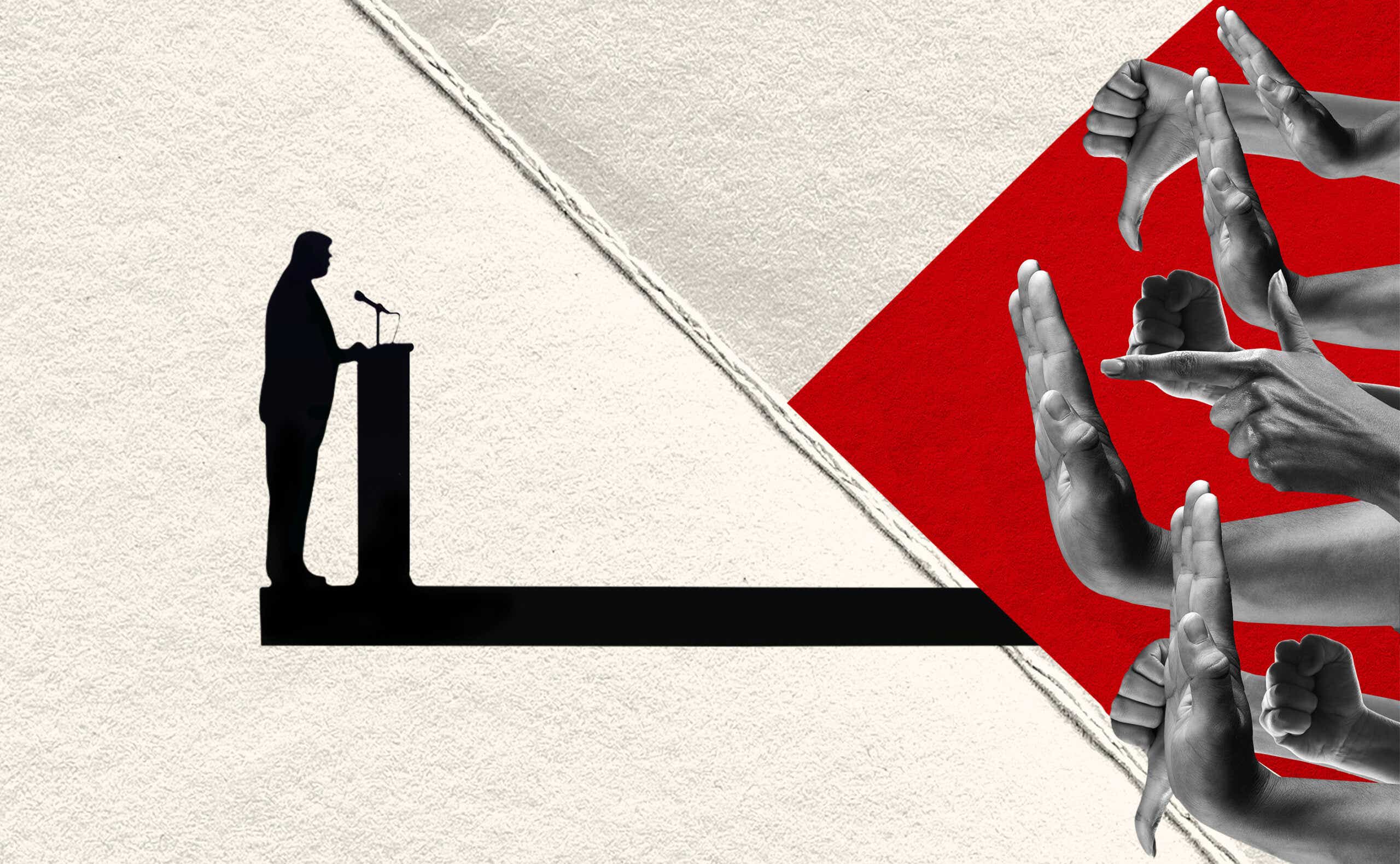Amid ongoing partisan fights over the country's budget and investigations into President Biden, it can be disheartening to follow what's happening on Capitol Hill these days — and as it turns out, a lot of Americans feel this way.
According to a new report from the nonpartisan Pew Research Center, 65 percent of respondents always or often feel exhausted when thinking about politics, while another 55 percent feel angry. By comparison, just 10 percent say they always or often feel hopeful about politics, and even fewer (only 4 percent) are excited about the issue.
So what’s behind this deep dissatisfaction? One big factor is that a majority of those surveyed believe the political process is dominated by special interest groups and campaign donors, and they've lost faith in elected officials, who are widely regarded as primarily self-serving.
Despite this bleak sentiment, engagement remains high — elections in 2018, 2020, and 2022 brought three of the highest voter turnouts in decades. Here’s a closer look at what Americans think about the current state of politics and how they hope to improve it.
What do Americans think of the current U.S. political system?
Believe it or not, neither Democrats nor Republicans are very popular among the public at large. Just 37 percent of Americans have a favorable view of the Democratic Party, while 36 percent have a positive impression of the Republican Party. Another 28 percent have a negative opinion of both parties, an attitude that has more than quadrupled since the 1990s.
Politicians themselves aren’t exactly held in high regard, either: 63 percent of those in the Pew report said most or all elected officials run for public office to make a lot of money. (For the record, members of the U.S. House of Representatives and Senate earn a base salary of $174,000 a year, according to the not-for-profit corporation the Congressional Institute.) Then once they're elected, about eight in ten Americans say they fail to keep "their personal financial interests separate from their work in Congress.”
Considering these findings, it probably won't surprise you hear that 79 percent of respondents used the words “divisive” and “corrupt” to sum up their feelings about politics.
Are Americans opening up to supporting a third party?
The Pew report shows that more Americans are starting to warm up to the idea of expanding the two-party system amid lagging enthusiasm for the most likely 2024 contenders for the White House, President Joe Biden and Republican rival Donald Trump.
About 37 percent of Americans said they wished they had more parties to choose from, a sentiment shared by nearly half of independent voters. About 26 percent say more choices would make it easier to solve problems, compared to roughly 24 percent who say that would make it harder. Roughly a quarter say it wouldn’t have much of an impact.
Although American politics have been dominated by a two-party system, "third" political parties have cropped up throughout history. The latest group, No Labels, has landed spots on the ballot in several states in 2024, and politicians like Maryland Gov. Larry Hogan have been attached as potential candidates.
But amid concerns that this group could affect Biden’s support in key states, the political organization has vowed to bow out of the race if polling shows its candidate would cut into either Democratic or Republican support. "We're not in this to be spoilers," co-chairman Joe Lieberman told ABC's This Week in July. "If the polling next year shows, after the two parties have chosen their nominees, that in fact we will help elect one or another candidate, we're not going to get involved."
How do Americans want to fix all these problems?
With all these complaints flying about, what about solutions? The survey found that Americans have a few ideas about how to shake up the business-as-usual problems in our politics.
One of those that's particularly popular is ending the Electoral College, which decides who will be elected president and vice president. It's long been considered a controversial system: In 2000, Al Gore won half a million more popular votes than George W. Bush but still lost after the Supreme Court halted a recount in Florida. Then in 2016, Donald Trump was declared the winner, even though rival Hillary Clinton won nearly 3 million more votes than him. Outcomes like that don't sit well with approximately 65 percent of Americans who support electing the presidential candidate who wins the popular vote, while a third would prefer to stick with the current system.
Americans are also thinking deeply about our country's aged leaders, who make up the third oldest Congress since 1789. Many of them have already faced health scares: Senate Minority Leader Mitch McConnell froze mid-sentence during a news conference, while Democratic Sen. Dianne Feinstein was hospitalized after a fall.
According to Pew, 79 percent of voters support an age limit for members of Congress, and another 74 percent support putting one in place for Supreme Court justices, who have lifetime appointments. It's worth noting that support for age limits was widely shared across partisan lines when it came to members of Congress, but the opinions grow more divisive when it comes to the high court. While 82 percent of Democrats support such a restriction for SCOTUS justices, only 68 percent of Republicans said the same, which we can probably attribute to the way the court has become more conservative-leaning in recent years.
Meanwhile, other reforms that have been floated lately, like court packing, have lost support: 51 percent of Americans oppose adding justices to the Supreme Court to shift its ideological makeup, compared to 46 percent who would favor such a move.
It's always fascinating to track Americans' shifting political perspectives in polls like this, but nothing shows voters' true colors quite like an election — and with the 2024 race heating up, it's safe to say we'll have lots of fascinating data to unpack over the next year.









